Solar energy production is soaring. In the first half of 2023 alone, 45% of all new electricity-generating capacity added to the US energy grid came from solar. Reports predict an ongoing drop in solar energy pricing along with a steady increase in global installed capacity.
Amid this surge, businesses should be wondering how to tap into the power of solar. In this article, we’ll review the benefits of installing a solar panel system for your business and how much commercial solar panels cost to buy, install, and maintain.
Let’s dive right in.
Table of Contents
Advantages of solar panels for your business
How much do commercial solar panels cost?
Will solar panels really save you money?
Summing up
Advantages of solar panels for your business?
Go green
One of the main reasons to embrace solar panels is their positive impact on the environment. You can harness the sun’s energy and reduce reliance on other, more harmful, energy sources. This will lower your business’s environmental impact and contribute to the global efforts to combat climate change.
Save money
While doing the good deed of saving the planet, you’ll also be saving money in the long run. Solar panels come with a certain upfront cost. That said, they help businesses generate their own electricity, reducing operational costs. Also, those who generate more electricity than they need can either turn to net metering for use during peak operations or sell the remainder to the local utility company, earning credits and compensation.
For a small business, you can expect savings similar to an average American household, which amounts to US$ 1,500 per year. For larger companies, savings will depend largely on the scale of their operations and solar plant.
Attract customers
Beyond the environmental benefits, generating solar energy can help you attract customers. Today, consumers want green businesses. Often, they are willing to pay more for products or services from environmentally conscious companies.
So, showcasing your commitment to sustainability through a solar-powered establishment can attract individuals looking to reduce their overall carbon footprint. It can also serve B2B clients who factor in environmental impact assessments during their vendor selection process.
Get government incentives
Governments worldwide recognize the importance of transitioning to renewable energy sources. They often provide businesses and individuals alike with incentives and tax breaks for going green. By installing a solar power plant, you may be able to take advantage of these financial perks and reduce your upfront costs.
Reduce your carbon footprint
Achieving zero carbon emissions is paramount. Solar panel systems offer a clean, renewable energy source suitable for a carbon-neutral future. For example, Germany expects that by 2037, solar roofs will provide electricity to over four million homes in the country.
By greening your business, you’ll be on trend with global sustainability initiatives and part of the change we all want to see.
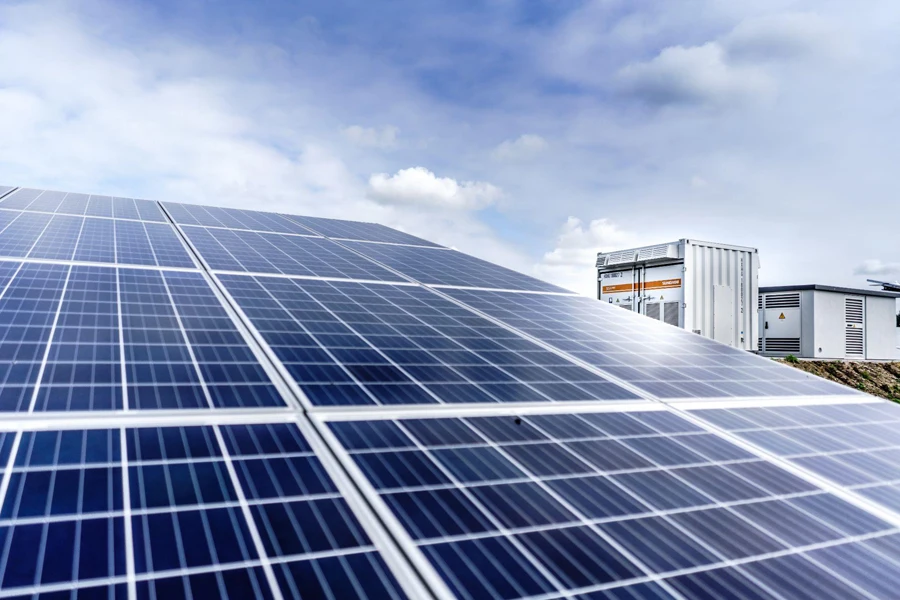
How much do commercial solar panels cost?
Convinced that solar panels are the right choice for your business? Now, it’s time to consider the cost of commercial solar panels. There are many factors that affect these costs, such as size, quality, installation requirements, and more. But let’s take a look at some average costs and the factors at play for business owners.
Cost of solar panels
Solar panels have gotten much cheaper in recent years. As a result, they have gained increased popularity for both individuals and businesses. A utility-scale solar panel costs about US$ 0.77 to US$ 0.89 per watt of electricity it produces. On a commercial scale, panels are a bit more expensive, costing about US$ 1.66 per watt. Meanwhile, for residential panels, the cost per watt ranges from US$ 2.39 and US$ 3.66.
These are just average numbers, and there are many factors that will affect total cost. These include the panel type and efficiency, system size, additional equipment, and project complexity.
Some businesses may benefit from certain cost-savings, like economies of scale for larger systems or government incentives in certain countries.
Installation costs
Solar panel installation costs are a crucial consideration when adopting solar energy. Installation expenses can vary based on factors such as the complexity of the installation, location, and the type of roof. For example, installation and labor costs will be cheaper on a flat roof.
The average cost to install a residential solar system may be anywhere between US$ 15,000 and US$ 22,000 on average for a 2,000-square-foot home. Meanwhile, commercial solar systems will run a small business anywhere from US$ 100,000. Large businesses can expect to invest much more, reaching hundreds of thousands of dollars, depending on complexity.
Note that these are average costs in the US and will vary significantly depending on your business’s location.
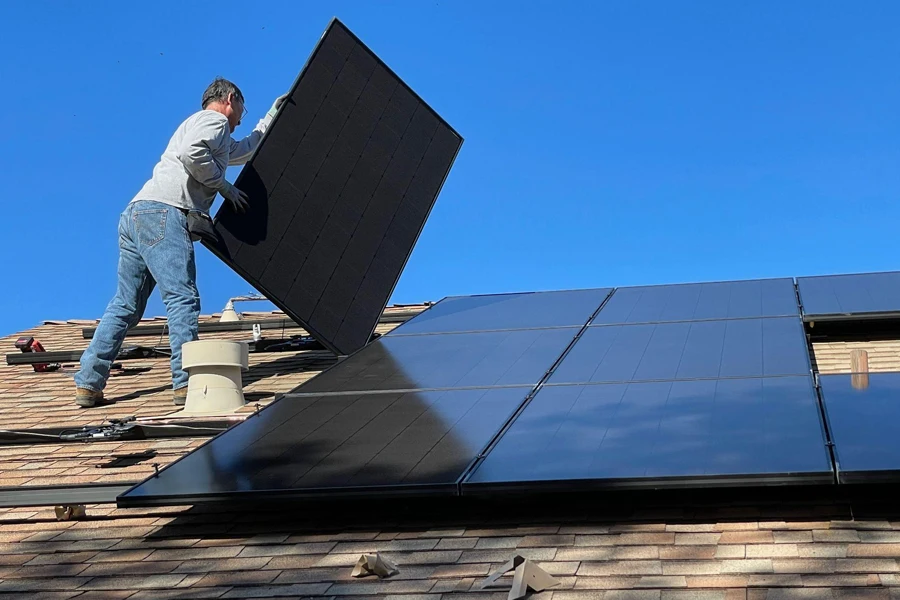
Solar panel maintenance costs
The maintenance requirements for solar panels are relatively low. However, they do still represent a certain cost. Small businesses operating out of their residence can expect to spend a few hundred dollars annually on maintenance. Maintenance will usually be included in the warranty or after-service package for large-scale projects. The actual cost will vary with project size.
Will solar panels really save you money?
The upfront investment in solar panels can seem significant. However, the long-term savings are likely to outweigh the initial investment. Solar panels generate electricity, reducing or eliminating monthly electricity bills. Plus, since many governments offer tax incentives, Federal tax credits, and rebates to encourage solar adoption, they further reduce the overall cost.
As energy savings accumulate over time, businesses start to see their return on investment. This makes solar panels a financially sound and environmentally friendly choice for homeowners and businesses alike.
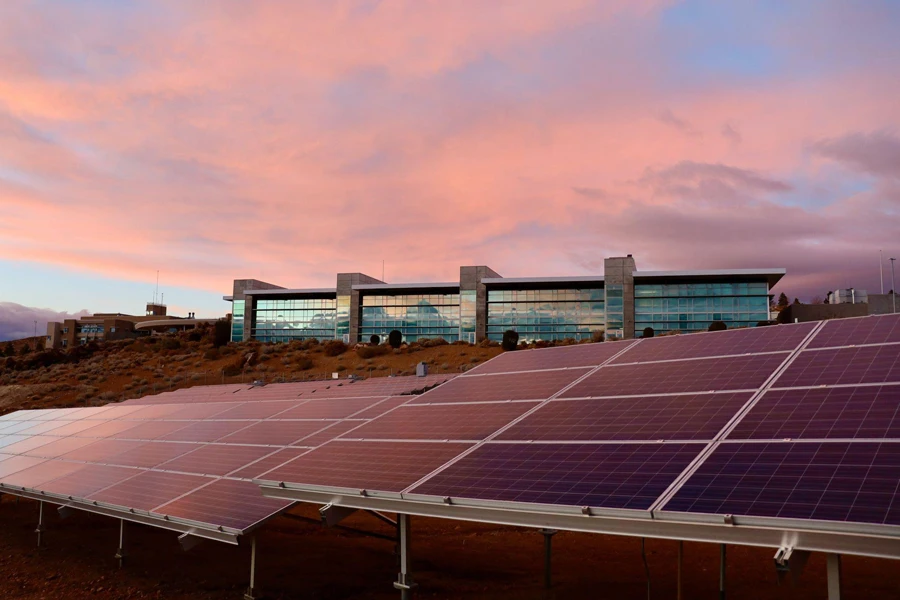
Summing up
Should you or should you not install a commercial or residential solar power plant? That’s a decision that your business will need to make based on its unique needs, energy spending, and green priorities.
The bottom line with solar panels is that they do reduce your carbon footprint and will likely save you money in the long run. However, if your business is cash-strapped, it may be a good idea to start with a smaller solar project or wait for the right incentives from the government to roll in. And finally, remember to subscribe to Chovm.com’s blog to ensure you stay updated on all the latest developments in solar energy!
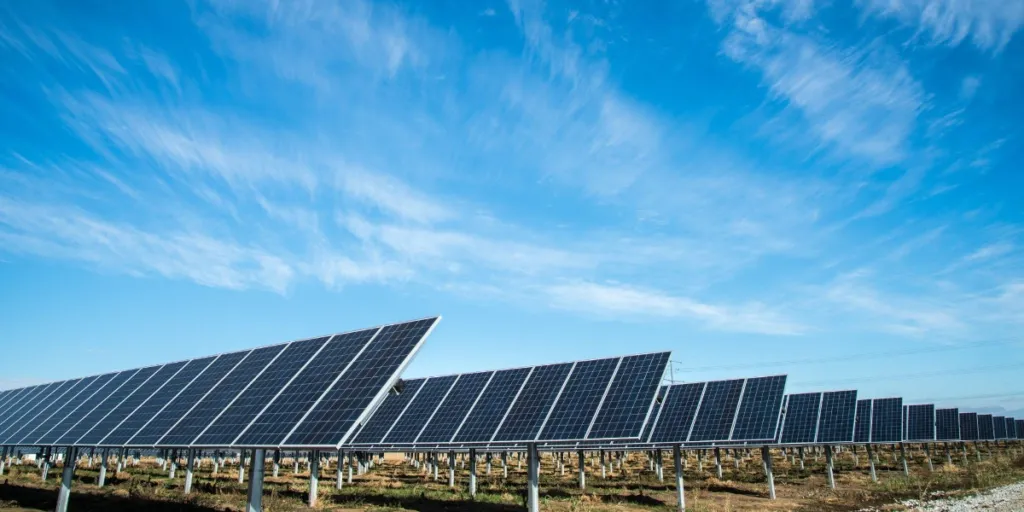
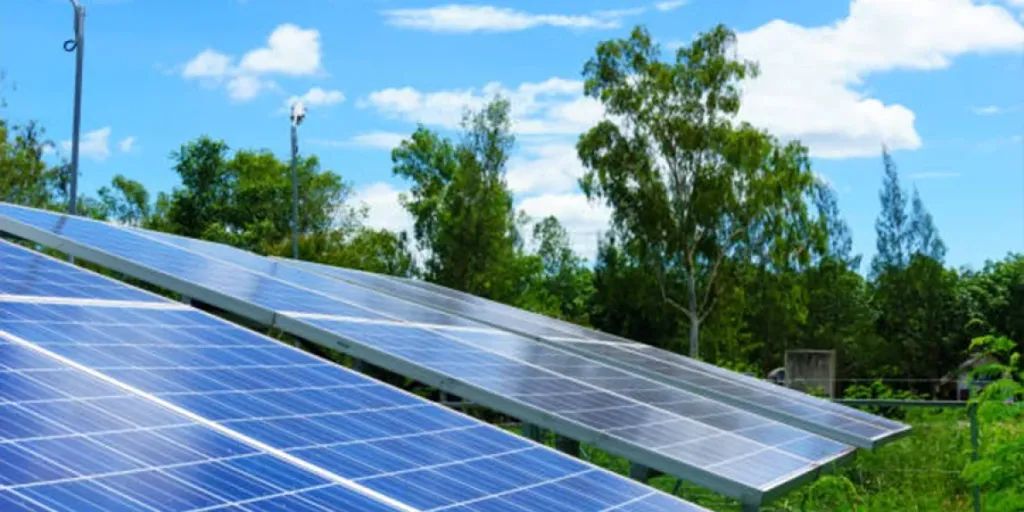
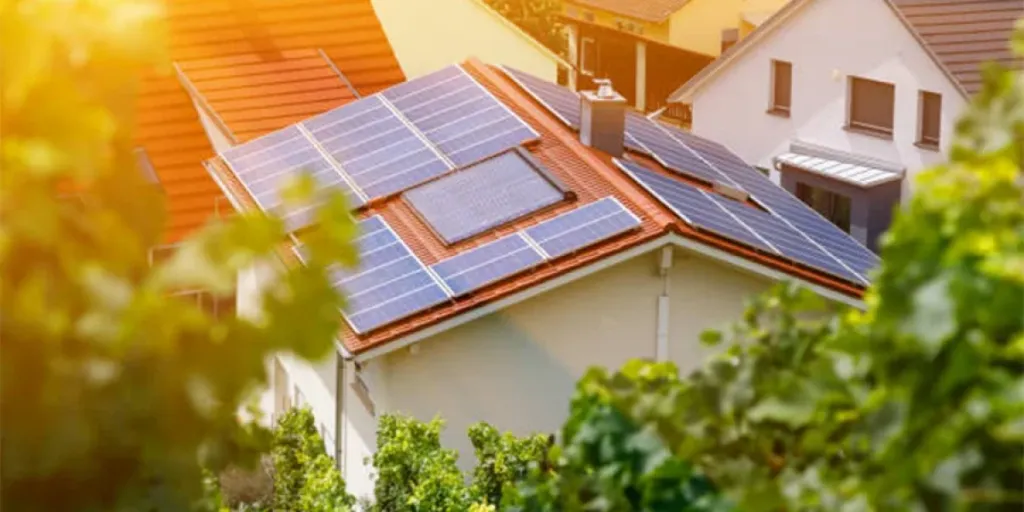
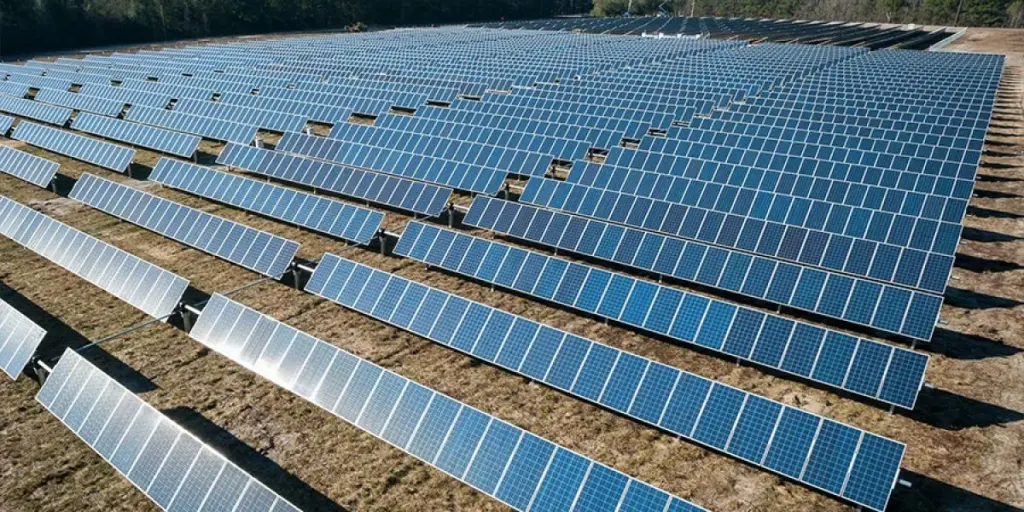

 বাংলা
বাংলা Nederlands
Nederlands English
English Français
Français Deutsch
Deutsch हिन्दी
हिन्दी Bahasa Indonesia
Bahasa Indonesia Italiano
Italiano 日本語
日本語 한국어
한국어 Bahasa Melayu
Bahasa Melayu മലയാളം
മലയാളം پښتو
پښتو فارسی
فارسی Polski
Polski Português
Português Русский
Русский Español
Español Kiswahili
Kiswahili ไทย
ไทย Türkçe
Türkçe اردو
اردو Tiếng Việt
Tiếng Việt isiXhosa
isiXhosa Zulu
Zulu